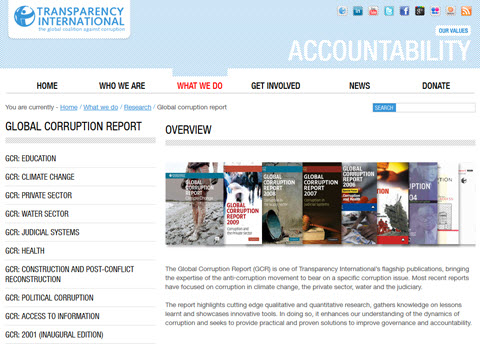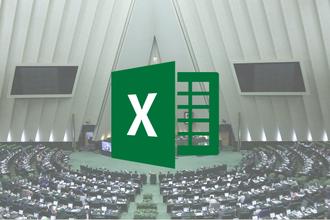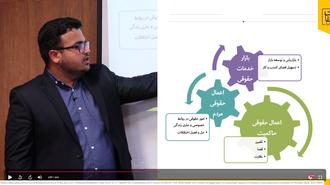گزارش جهانی فساد (Global Corruption Report) یکی از اسناد منتشر شونده توسط سازمان شفافیت بینالملل است که بهترین تجارب حرکتهای مقابله با فساد، در یک موضوع مشخص را در دل خود جای میدهد. این گزارشها آخرین تحقیقات کمی و کیفی انجام شده بر این مسائل را آشکار کرده، دانش تجارب موجود و نیز ابزارهای نوآورانه بکارگرفته شده را گردآوری میکند. بدین ترتیب این گزارشها پویاییهای فساد را نمایان کرده و راهکارهای عملی و اثبات شده برای اتقاء حکمرانی و پاسخگویی را ارائه مینماید.
| حوزه شفافیت |
قوه قضائیه |
Judiciary |
Scope |
| موضوع |
ارائه تجارب، گزارش |
Experiences, Report |
Subject |
| جغرافیا |
بینالمللی |
International |
Geography |
| نوع مطلب |
متن |
Text |
Type |
| زبان |
انگلیسی |
English |
Language |
| منتشر کننده |
شفافیت بینالملل |
Transparency International |
Publisher |
وبسایت اصلی این گزارش در سایت سازمان شفافیت بینالملل:
Global Corruption Report (GCR)
گفتنی است حوزههای موضوعی که تاکنون این گزارشها پوشش دادهاند، عبارت بودهاند از:
برای نمونه و در ادامه، 26 پیشنهاد عملیاتی از چکیده اجرایی گزارش 367 صفحهای GCR سال 2007، که با موضوع «فساد در نظام قضائی» (که با همکاری دانشگاه کمبریج انگلستان تهیه شده است)، ذکر میگردد:
Global Corruption Report 2007: Corruption and judicial systems
Recommendations
The following recommendations reflect best practice in preventing corruption in judicial systems and encapsulate the conclusions drawn from the analysis made throughout this volume. They address the four key problem areas identified above: judicial appointments, terms and conditions, accountability and discipline, and transparency.
|
Judicial appointments
- 1. Independent judicial appointments body An objective and transparent process for the appointment of judges ensures that only the highest quality candidates are selected, and that they do not feel indebted to the particular politician or senior judge who appointed them. At the heart of the process is an appointments body acting independently of the executive and the legislature, whose members have been appointed in an objective and transparent process. Representatives from the executive and legislative branches should not form a majority on the appointments body.
- 2. Merit-based judicial appointments Election criteria should be clear and well publicised, allowing candidates, selectors and others to have a clear understanding of where the bar for selection lies; candidates should be required to demonstrate a record of competenceand integrity.
- 3. Civil society participation Civil society groups, including professional associations linked to judicial activities, should be consulted on the merits of candidates.
Terms and conditions
- 4. Judicial salaries Salaries must be commensurate with judges’ position, experience, performance and professional development for the entirety of their tenure; fair pensions should be provided on retirement.
- 5. Judicial protections Laws should safeguard judicial salaries and working conditions so that they cannot be manipulated by the executive or by the legislature punishing independent judges and/or rewarding those who rule in favour of government.
- 6. Judicial transfers Objective criteria that determine the assignment of judges to particular court locations ensure that independent or non-corrupted judges are not punished by being dispatched to remote jurisdictions. Judges should not be assigned to a court in an area where they have close ties or loyalties with local politicians.
- 7. Case assignment and judicial management Case assignment that is based on clear and objective criteria, administered by judges and regularly assessed protects against the allocation of cases to pro-government or pro-business judges.
- 8. Access to information and training Judges must have easy access to legislation, cases and court procedures, and receive initial training prior to or upon appointment, as well as continuing training throughout their careers. This includes training in legal analysis, the explanation of decisions, judgement writing and case management; as well as ethical and anti-corruption training.
- 9. Security of tenure Security of tenure for judges should be guaranteed for about 10 years, not subject to renewal, since judges tend to tailor their judgements and conduct towards the end of the term in anticipation of renewal.
Accountability and discipline
- 10. Immunity Limited immunity for actions relating to judicial duties allows judges to make decisions free from fear of civil suit; immunity does not apply in corruption or other criminal cases.
- 11. Disciplinary procedures Disciplinary rules ensure that the judiciary carries out initial rigorous investigation of all allegations. An independent body must investigate complaints against judges and give reasons for its decisions.
- 12. Transparent and fair removal process Strict and exacting standards apply to the removal of a judge. Removal mechanisms for judges must be clear, transparent and fair, and reasons need to be given for decisions. If there is a finding of corruption, a judge is liable to prosecution.
- 13. Due process and appellate reviews A judge has the right to a fair hearing, legal representation and an appeal in any disciplinary matter.
- 14. Code of conduct A code of judicial conduct provides a guide and measure of judicial conduct, and should be developed and implemented by the judiciary. Breaches must be investigated and sanctioned by a judicial body.
- 15. Whistleblower policy A confidential and rigorous formal complaints procedures is vital so that lawyers, court users, prosecutors, police, media and civil society can report suspected or actual breaches of the code of conduct, or corruption by judges, court administrators or lawyers.
- 16. Strong and independent judges’ association An independent judges’ association should represent its members in all interactions with the state and its offices. It should be an elected body; accessible to all judges; support individual judges on ethical matters; and provide a safe point of reference for judges who fear they may have been compromised.
Transparency
- 17. Transparent organisation The judiciary must publish annual reports of its activities and spending, and provide the public with reliable information about its governance and organisation.
- 18. Transparent work The public needs reliable access to information pertaining to laws, proposed changes in legislation, court procedures, judgements, judicial vacancies, recruitment criteria, judicial selection procedures and reasons for judicial appointments.
- 19. Transparent prosecution service The prosecution must conduct judicial proceedings in public (with limited exceptions, for example concerning children); publish reasons for decisions; and produce publicly accessible prosecution guidelines to direct and assist decision makers during the conduct of prosecutions.
- 20. Judicial asset disclosure Judges should make periodic asset disclosures, especially where other public officials are required to do so.
- 21. Judicial conflicts of interest disclosure Judges must declare conflicts of interest as soon as they become apparent and disqualify themselves when they are (or might appear to be) biased or prejudiced towards a party to a case; when they have previously served as lawyers or material witnesses in the case; or if they have an economic interest in the outcome.
- 22. Widely publicised due process rights Formal judicial institutional mechanisms ensure that parties using the courts are legally advised on the nature, scale and scope of their rights and procedures before, during and after court proceedings.
- 23. Freedom of expression Journalists must be able to comment fairly on legal proceedings and report suspected or actual corruption or bias. Laws that criminalise defamation or give judges discretion to award crippling compensation in libel cases inhibit the media from investigating and reporting suspected criminality, and should be reformed.
- 24. Quality of commentary Journalists and editors should be better trained in reporting what happens in courts and in presenting legal issues to the general public in an understandable form. Academics should be encouraged to comment on court judgements in legal journals, if not in the media.
- 25. Civil society engagement, research, monitoring and reporting Civil society organisations can contribute to understanding the issues related to judicial corruption by monitoring the incidence of corruption, as well as potential indicators of corruption, such as delays and the quality of decisions.
- 26. Donor integrity and transparency Judicial reform programmes should address the problem of judicial corruption. Donors should share knowledge of diagnostics, evaluation of court processes and efficiency; and engage openly with partner countries.
|
Global Corruption Report 2007: Corruption and judicial systems







